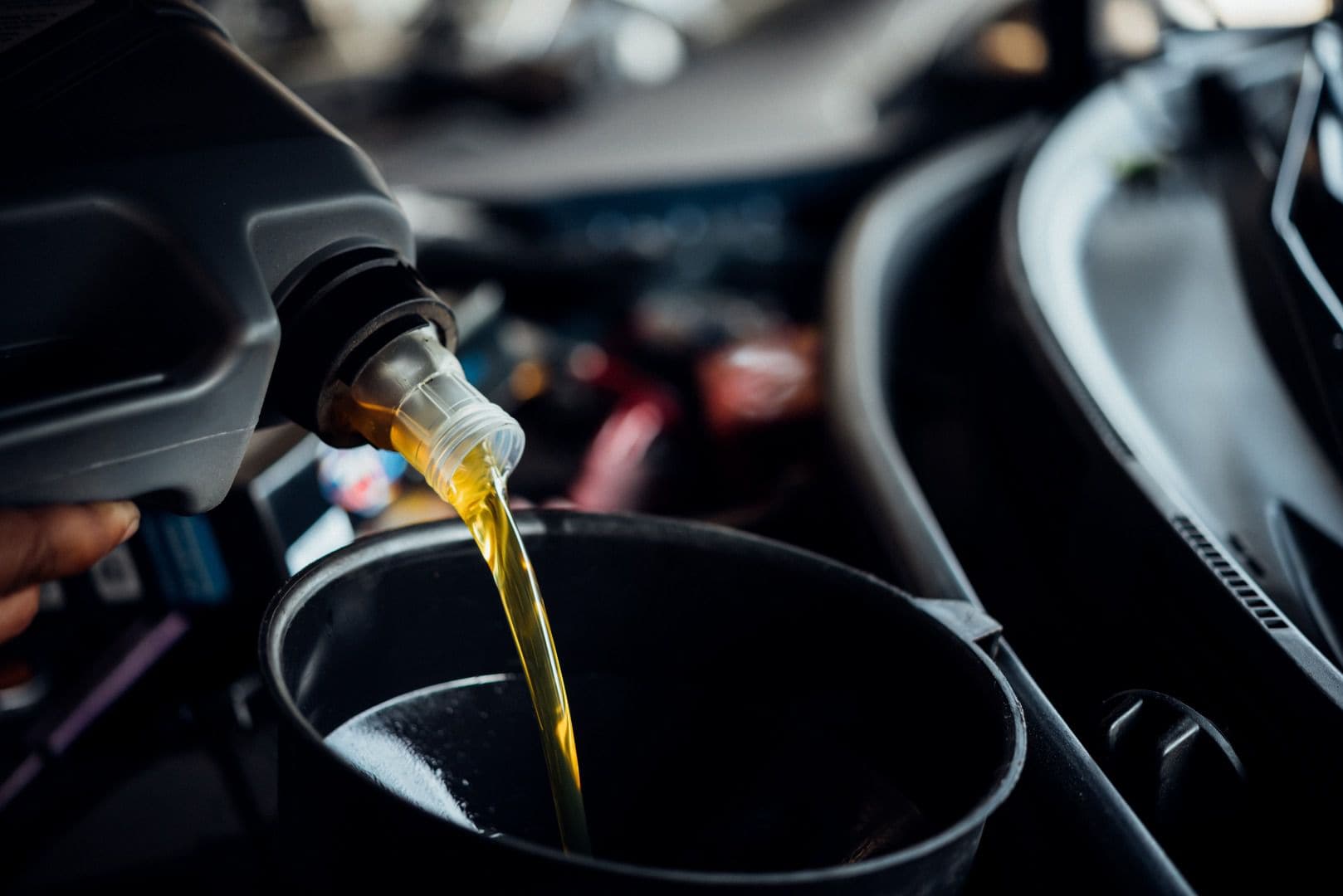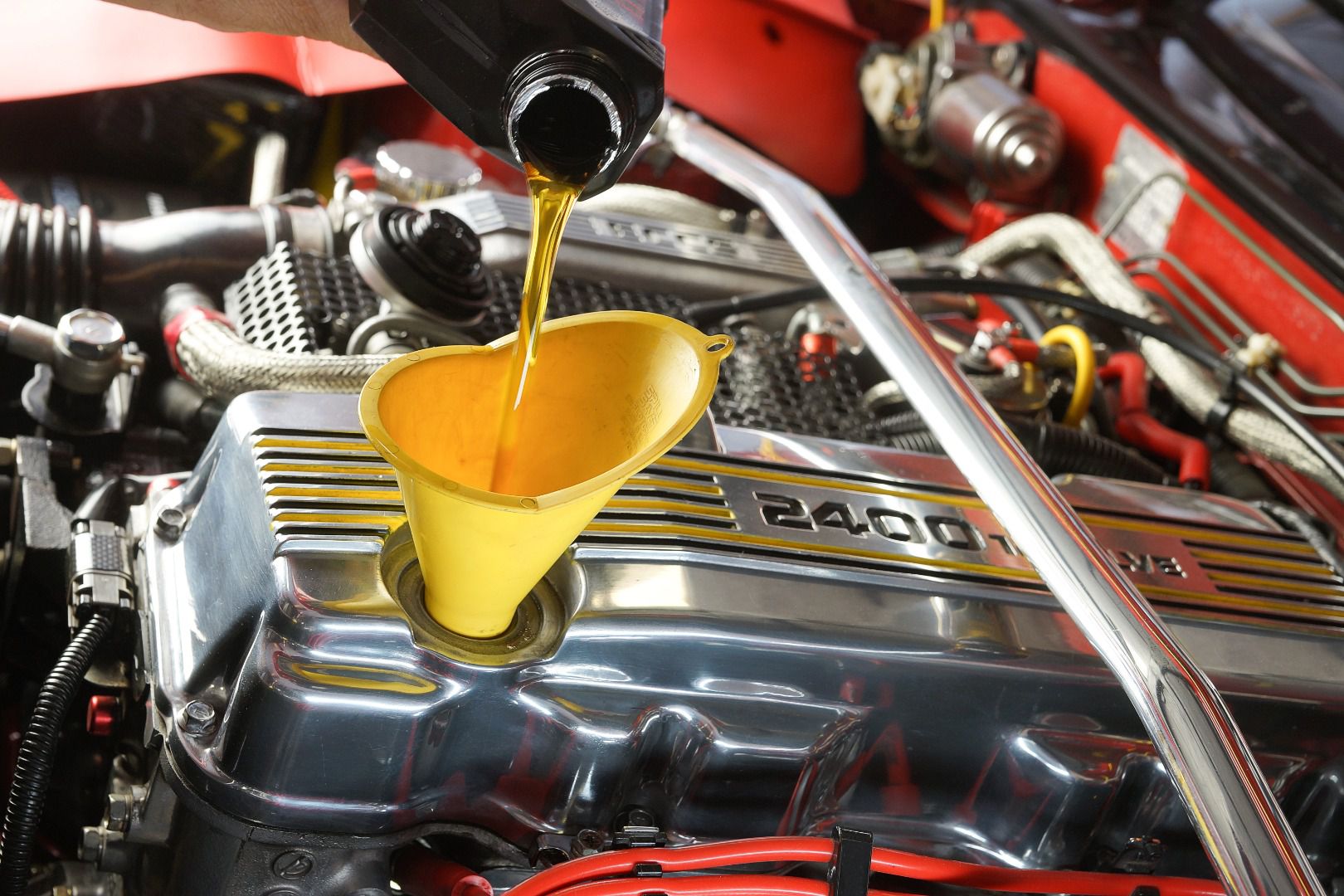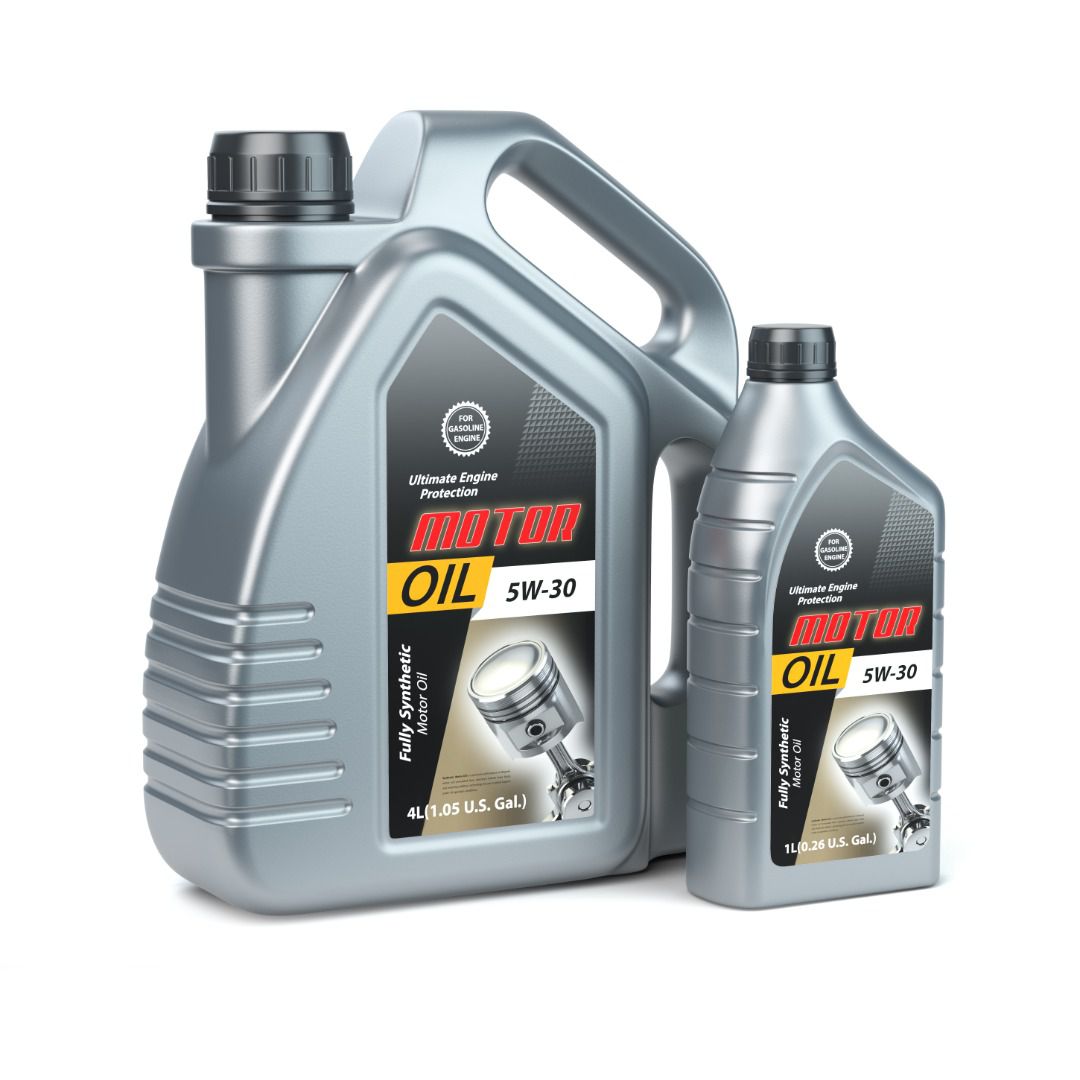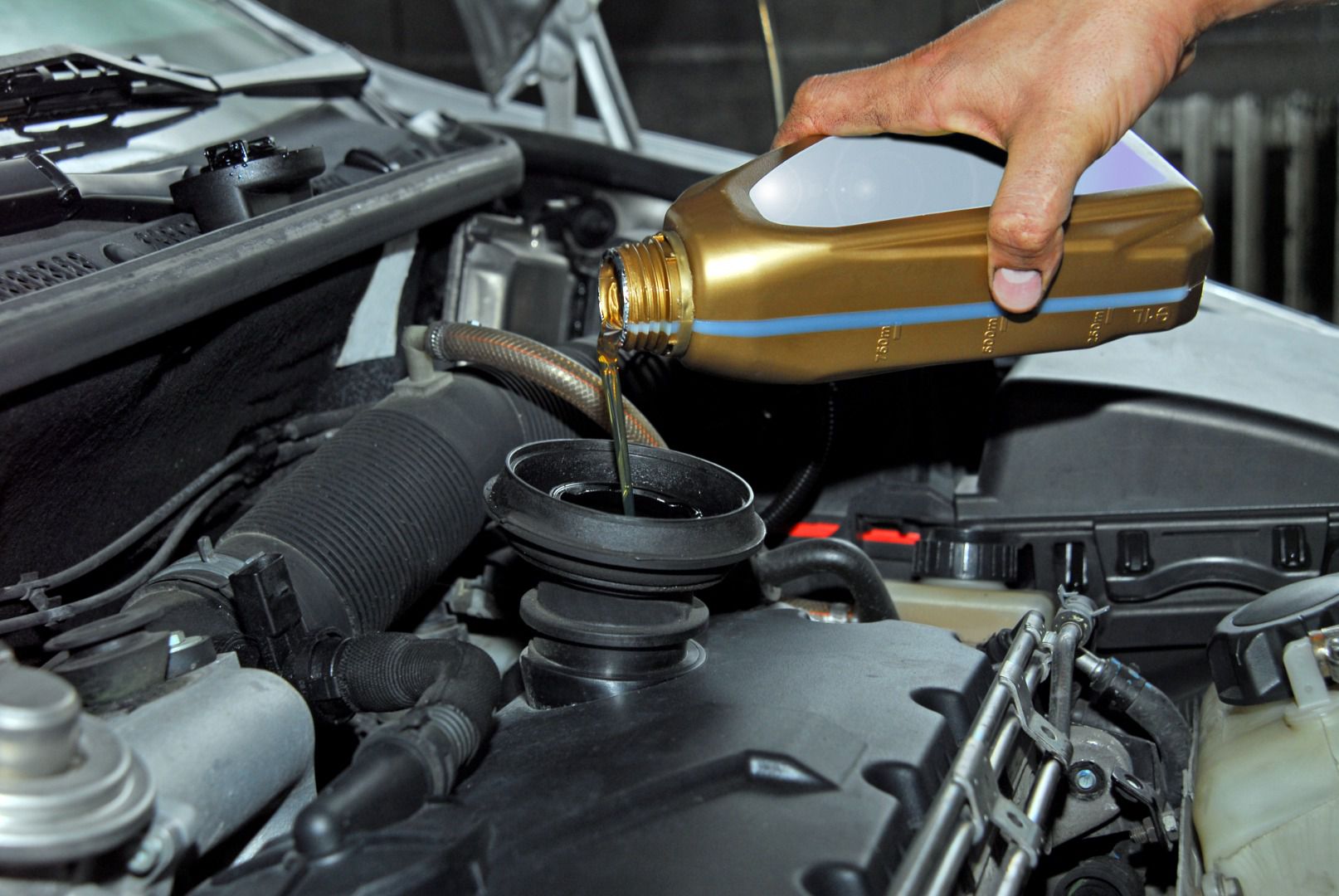Recent Articles
Popular Makes
Body Types
Synthetic vs. Traditional Motor Oils

Motor oil ・ Photo by Vasuta Thitayarak
When your vehicle needs an oil change, or if you go to the auto parts store to buy engine oil, one of the choices you have to make is whether to buy synthetic motor oil or a traditional “conventional” motor oil.
It’s an important decision because synthetic motor oil generally costs more than traditional products. You need to know if your car requires synthetic oil, and if your car can benefit from the more expensive products.
What Is Synthetic Motor Oil?
All motor oils start with crude oil, pumped out of the ground. This material is a very impure mixture of hydrocarbons and organic molecules left over from plant and animal life that flourished on Earth millions of years ago. Gasoline, diesel fuel, and motor oils are just a few of the products made by refining crude oil. Traditional motor oil is simply distilled crude oil, with most of the impurities removed.
Synthetic oil takes that process further. The oil is broken down to its molecules and then recombined with man-made chemical compounds that are not found in the original crude oil. The result is a highly consistent and pure form of motor oil. In a synthetic motor oil, more than 75 percent is the basic oil but the rest is made up of the additives.

Photo by MaxSafaniuk - stock.adobe.com
Does Your Vehicle Require Synthetic Oil?
Many modern vehicles have been designed to rely on synthetic oils. The reason is that synthetics resist burning much better than traditional oils, and synthetics help keep an engine clean. Synthetic oils also maintain their protective viscosity longer, allowing you to go farther between oil changes.
Check your vehicle’s owner’s manual (you can find it online if your paper copy has gone missing) and you will find a recommended type and weight of engine oil. This information is also usually found on a sticker, placed prominently in the engine compartment. You should always use the type and weight of oil recommended by the automaker.

Photo by mario beauregard - stock.adobe.com
Benefits of Synthetic Oil
Synthetic motor oil generates less resistance inside your vehicle’s engine than conventional oil, which reduces internal wear. Using synthetic oil results in lower emissions, better fuel economy, longer durations between oil changes, and superior performance in extremely high or low temperatures.
When engines have been run on synthetic oils, they remain cleaner and the metal parts that move in contact show far less wear over time. Engines run from the beginning on synthetic will tend to last longer than engines run on traditional oils. The Automobile Association of America (AAA) published a study in 2017 that found that synthetic oils dramatically outperformed traditional oils in a range of tests.

Photo by srki66 - stock.adobe.com
What About the Price Difference?
Synthetic oils cost more than traditional motor oils because of the additional processing and chemical components in the oil. It’s tempting to buy cheaper oil, especially for an older car with lower cash value. However, running traditional oil in a car that should have synthetic can lead to expensive engine trouble.
If the engine requires synthetic oil, it’s because the automaker is relying on the oil’s ability to lubricate under tight tolerances and carry away harmful byproducts such as acids and sludge that otherwise accumulate in the engine.

Photo by Maksym Yemelyanov - stock.adobe.com
What About Turbocharged Engines?
Synthetic oils are often required for modern turbocharged vehicles. Turbochargers run very hot, and spin at speeds up to 200,000 rpm. The bearings inside the turbo are lubricated with engine oil. When traditional motor oil encounters the heat in a turbo, it may leave impurities as deposits in the turbo and in the oil lines that supply the turbo.
Over time, those deposits restrict and clog oil flow to the turbocharger, which can then fail. Synthetic oil helps keep those deposits from forming, and can eliminate old deposits before your turbo has a problem.

Photo by Porsche
Will Synthetic Motor Oil Make My Vehicle Leak?
When synthetic motor oils were first becoming popular, there were reports of vehicles leaking oil around various seals. It was thought that the synthetic oil could perhaps sneak by engine seals because it was thinner. That wasn’t true. In some cases, the tendency of synthetic oil to clean the engine removed some sludge that had been the only thing plugging a leak, but the synthetic oil does not generally cause any damage to engine seals.
For any car made in the last 20 years or so, the seals and gaskets should be more than capable of containing synthetic oil. Even if your car has been run with traditional motor oil, switching to synthetic should not cause a problem. For classic cars, consult your mechanic before switching.

Photo by Adobe Stock
What About Synthetic Blends?
Synthetic blended motor oil is a product that includes some synthetic oil mixed with traditional motor oil. As you might expect, this product offers some of the benefits of a synthetic product at a lower price than a full synthetic. A synthetic blend can be a good compromise to raise the protection of an older, high-mileage vehicle that has been run for years (or decades) on traditional motor oil.
As always, check with your mechanic about switching to a blended motor oil in an older vehicle, and follow the automaker’s recommendations for newer vehicles.

Photo by Olga Yastremska and Leonid Yastremskiy
Switching to Synthetic Oil
If you are switching to synthetic oils in a vehicle that has accumulated many years and miles with traditional oils, there are a couple things you can do to help make the transition. First, always change the oil filter when you change the oil. Then, make sure you make your next several oil changes with synthetic at 3,000 miles, even though the synthetic oil may be rated to last longer. Use the same weight of synthetic oil as traditional oil. Follow the weights recommended by the manufacturer of your vehicle.
The reason to keep the same oil change interval is that as the synthetic oil cleans the sludge left by combustion byproducts in your vehicle’s engine, those impurities will be trapped in the filter and suspended in the oil. Changing the oil on schedule will help purge your engine of those byproducts. Note that you can switch back to traditional motor oil at any time with no negative consequences, and then switch back to synthetic again at any time.

Photo by Ivan Uralsky
What Engine Oil is Right for My Vehicle?
If you have an older vehicle designed to use traditional motor oils, there’s no problem sticking with those products. However, consider changing to a high-mileage traditional oil if you have concerns about oil burning. All modern motor oils that carry the American Petroleum Institute (API) certification label are tested for quality.
With older vehicles, regular oil changes are the most important thing. There’s nothing wrong with sticking with your program. Traditional motor oils are very good on their own, just not as advanced as synthetics.

Photo by Dmytro - stock.adobe.com
Recap: Synthetic vs. Traditional Motor Oils
To recap, here are the important points to take away from this article:
- Synthetic oils are made from the same basic petroleum as traditional oils. Synthetics just get more processing and additives.
- Synthetic motor oils cost more than traditional motor oils because of the extra processing they require.
- Check your vehicle’s documentation and use the type and weight of oil recommended by the manufacturer, and change the oil and filter on the manufacturer’s recommended schedule.
- You can switch to synthetic motor oil on an older or high-mileage vehicle without any negative consequences, and you can switch back to traditional oil, too.
- You can keep running your older vehicle on traditional oils with a regular maintenance schedule.

Photo by algre - stock.adobe.com